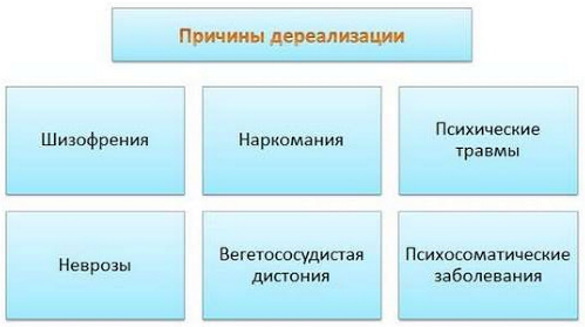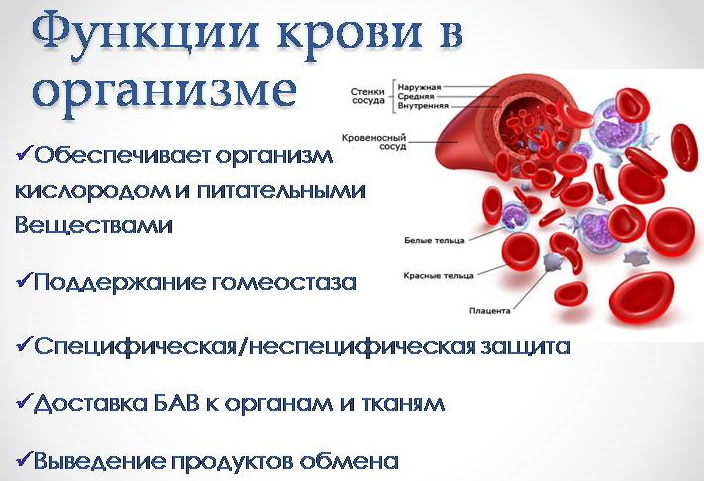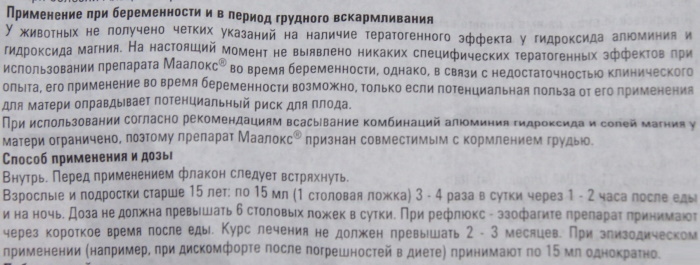Content
- Definition
- Characteristic
- Pathogenesis
- Symptoms
- Causes
- Diagnostics
- Treatment methods
- Potential consequences and complications
- Derealization video
Derealization is a defense mechanism which usually serves to alleviate severe emotional pain caused by very painful experiences or trauma, from which you can get rid of yourself or seek help from psychotherapist.
Definition
Derealization disorder is one of the dissociative disorders in the modern diagnostic classification. The term "dissociation" is used to describe the gap between things usually related to each other. In this case, perceptions are considered dissociated, in particular, the integration of perceptual experiences.
Derealization (getting rid of the disease on your own is possible if you do not confuse it with other diseases, such as schizophrenia or dissociative disorders) is a phenomenon that occurs in cases of panic attack or post-traumatic stress disorder disorders. Perception of the non-existent for the real or not perceiving the real correctly are signs of the onset of the disease.
In other words, derealization is a defense mechanism that is generated in the face of stressful situations and with with the help of psychological interventions, the level of anxiety decreases, the reasons for further progression disappear disease.
Characteristic
Derealization, to get rid of independently of which it is possible with an accurate determination of the causes of occurrence, according to the inner state is similar to the feeling of unreality, that is, the feeling that what is happening to a person is unreal or strange. This is an instant or temporary change in perception.
The disorder is characterized by a persistent or repetitive sense of separation from one's own self, observing one's body from the outside and one's own mental process, as if looking at himself from the side through the eyes of another person or has a feeling that he is completely cut off from those who surrounds.
The disease is characterized by:
- Repetition in episodes.
- The onset is permanent or gradual.
- Continuous state.
Feelings of derealization are considered a disorder when:
- Derealization occurs on its own (it was not caused by recreational drugs or other mental disorders) and persists or recurs.
- The symptoms are of extreme anxiety and prevent a person from functioning normally in the world.
When derealization occurs due to anxiety, the trauma is unreal or non-existent. Even so, the mind thinks that the trauma does exist and therefore generates a defense mechanism for derealization. In anxiety disorders, fear is out of proportion to reality. The mind will try to help, therefore, when experiencing a stressful situation, there is a feeling of sleep that the objects are unreal.
It may happen that when the first symptoms of derealization appear, the person becomes even more anxious, because he feels that he is going crazy.
Pathogenesis
The onset of the illness is often triggered by a serious stressful event, especially if the person has been emotionally abused or he was neglected in childhood or other serious stressful situations (may be physical abuse or observation of such violence). The feeling that it is detached from self or from the environment can appear from time to time or on an ongoing basis.
The onset of the disorder can occur from early childhood or closer to its equator. In rare cases, it begins after a person is 40 years old. Derealization disorder occurs in about 2% of the population and affects males and females equally.
Derealization is a little-known and relatively little-studied phenomenon, but approximately 1/2 of the adult population has experienced at least one moment of derealization in isolation during their lifetime.
It is often difficult for a person to describe their symptoms, they believe or fear that they will go crazy. However, they are always aware that their experiences of separation are not real, but are only a reflection of their feelings. Awareness of the disease is what distinguishes derealization from a mental disorder. People with psychotic disorders are unaware of their illness.
Symptoms
Symptoms are associated with the feeling that a person is disconnected from the people around, from objects or from the environment.
The symptoms and signs are as follows:
- Feeling the experience is like part of a movie or a dream.
- Feeling that a person is emotionally not on a par with other people. He often feels emotionally disconnected.
- It seems that the environment is completely different. In other words, the perception of the environment is distorted, like in a fog. For example, the feeling that recent events happened a very long time ago, or that time passes at a very slow or accelerated pace. The perception of objects in the environment varies in shape, size, distance, color. In this case, it is useful to undergo a course of psychotherapy, and especially well a course of cognitive-behavioral therapy.
- The emergence of temporary feelings of depersonalization. Sufferers of the disease at one point or another have a feeling of being distracted from themselves (depersonalization), or they are completely disconnected from those around them (derealization). Such sensations usually appear after the person in question is exposed to a situation that is dangerous to his life.
- Symptoms also occur with the use of a number of recreational drugs (ecstasy, marijuana, ketamine hallucinogens, or the like).
- Feeling very tired.
- Insomnia or lack of sensory stimulation (can happen when the victim is in the intensive care unit).
- Derealization can also manifest itself as one of the symptoms in the presence of other mental disorders, convulsive physical disorders.
- A person may feel as if he is asleep or immersed in fog, or as if he is standing behind a glass wall or veil, which prevents rapprochement with the environment. The perception of the world is distorted, as if it is not alive or not real, everything seems to be distorted. For example, things around them can be fuzzy, extremely clear, completely flat, much larger or smaller than they actually are. Sound can be heard at high volume or at all, although in reality it is not. Slowing down in time space.
- The manifestation of symptoms is almost always expressed in great discomfort, not everyone can endure it. Anxiety and depression are common. People fear that the symptoms are caused by permanent damage to the brain. Have fears and concerns about their real existence or repeatedly check their ideas for reality.
- Stressful situations, worsening depression or anxiety, an altered or overly stimulating environment, and lack of sleep can aggravate the onset of symptoms. They are often persistent.
Causes
Causes can be related to a serious stressful event (for example, due to personal relationships, finances, or work), depression, or anxiety.
Symptoms often appear in people who have experienced a major stressful event:
- Death of a family member or friend. These symptoms can trigger stressful situations as a defense.
- Violence, both emotional and physical, can cause these symptoms (as a defense or defense mechanism). The human mind creates what is perceived as unreal in order to protect itself or protect itself from reality.
- Cohabitation with a seriously weakened or mentally ill person.
Also, among the reasons, the following stand out:
- Certain medical conditions such as epilepsy, migraines, headaches, or head injuries can cause derealization symptoms that are difficult to get rid of on your own.
- Drug use.
- Quitting drug use can also cause derealization.
- Sleep disturbance. For example, if a person slept very little at night, then the next day there may be a feeling that he is experiencing something unreal or that what is happening is like a dream.
- Anxiety. As has been observed, anxiety can generate these types of symptoms as the mind engenders derealization as a defense mechanism against stressful situations.
- In addition, concomitant factors can increase the risk of symptoms, these are certain characteristics of the person. For example, those who make certain themselves more likely to avoid or deny the traumatic experience.
Diagnostics
It is important to correctly define derealization and understand how and why it manifests itself in panic attacks, how it differs from schizophrenia and dissociative disorders, and its most common causes. After a series of examinations to rule out other possible causes, the disease is diagnosed based on what symptoms the person has. To determine the violation, you need to see a psychiatrist who can make the correct diagnosis using a series of tests and prescribe an examination in the field of pathopsychology.
Derealization, which is quite difficult to get rid of on your own, is often not caused by medical diseases, other mental disorders, drugs or natural substances. Although episodes of the disorder are not associated with risks and are frequent in isolated cases, the victim usually gets rid of them himself, but, when they are repeated, it can significantly limit life and cause the sick person significant suffering. In these cases, it is advisable to see a psychotherapist to understand the condition, manage and overcome the little-known disorder.
Tests are sometimes done to rule out other possible causes of mental changes, such as psychological tests, questionnaires and structured interviews, test results are taken into account when diagnosis. Additionally, a study of the brain is prescribed using special devices.
Treatment methods
Derealization, which can be eliminated on its own without resorting to treatment, since sometimes all the symptoms go away on their own, is part of the symptoms of panic attacks. Thus, derealization is often taken into account when developing treatment for panic disorder. Moreover, it should be expected that if derealization occurs in anxiety, then the treatment reduces the level of anxiety and the frequency of occurrence of derealization will also be reduced.
Derealization can resolve without treatment and a person can get rid of it on their own without medication. Treatment is only indicated if the disease is persistent, repetitive, or causes severe discomfort. Other people do not respond well to treatment and the disorder becomes chronic.
Before visiting a doctor, it is worth making a list of the following points:
- A description of all symptoms, even those not related to the reason for the visit.
- Personal data, including data of family or loved ones.
- All medications, vitamins, herbs, or other supplements taken around the same period as symptoms, including dosage.
Questions to ask the specialist:
- What is the most likely cause of symptoms?
- Are there any other possible reasons?
- Are tests needed to confirm the diagnosis?
- What treatments are available? Which one is more recommended?
- Are there any alternatives to the main approach that is being proposed?
- Do I need to additionally contact other specialists?
- Is there an alternative to the medication that is prescribed?
- Are there brochures or other printed material that I can consult?
Effective treatments are:
| Psychotherapy | Derealization disorder is often associated with or triggered by other mental health disorders (such as anxiety or depression) that do require psychiatric intervention. Any emotional stress that triggers symptoms or may contribute to derealization disorder should also be treated. |
| Psychodynamic psychotherapy and cognitive behavioral therapy | In some cases, they have proven to be effective. Psychodynamic techniques help a person to cope with unbearable internal conflicts, negative feelings and experiences from which a person is disconnected. Cognitive therapies can block obsessive thoughts of unreality. Behavioral techniques can help a person become interested in tasks that distract him from depersonalization. |
| Use of anxiolytics and antidepressants | In some cases, anxiolytics and antidepressants are helpful, primarily because they relieve the anxiety or depression present in many people. However, anxiolytics can also increase feelings of derealization, so doctors monitor the use of such drugs closely and monitor the patient's response to this drug. |
| Rooting techniques | Techniques use the 5 senses (hearing, touch, smell, taste, and sight) to help people feel more connected to themselves and the world. For example, through loud music or a piece of ice placed in your hand. These sensations are difficult to ignore and make people aware of themselves the very moment they experience them. |
| Techniques for identifying your feelings | By tracking and labeling every moment of dissociation and affect (the outward expression of emotions and thoughts), affected people are taught to recognize and identify their feelings of dissociation. For some people, these practices are very useful, they also help the affected people focus on what is happening at that moment. |
 Sometimes it may be necessary to combine psychotherapy with medication, which can help relieve symptoms of acute stress. There are no specific drugs approved for the treatment of this disorder, but drugs can be used for certain symptoms, such as anxiety or depression.
Sometimes it may be necessary to combine psychotherapy with medication, which can help relieve symptoms of acute stress. There are no specific drugs approved for the treatment of this disorder, but drugs can be used for certain symptoms, such as anxiety or depression.
It is important that people with a history of some type of dissociative disorder support psychotherapy sessions. It is now possible to conduct classes online and receive recommendations from an online psychologist, including psychoeducation.
There is no need to be afraid or embarrassed to seek professional help if you find some of the symptoms or causes mentioned. Seeking help early can increase the chances of successfully using the treatment you need.
Potential consequences and complications
Stress plays a fundamental role and when faced with episodes, people usually make futile attempts to control their perceptions. This process of observing the naturalness of the experience contributes to its denaturation. Accepting and relinquishing control of one's own experience is fundamental, states of vigilance and attempts to deactivate the state of derealization are counterproductive.
Symptoms, even those that persist or recur, can cause only minor problems if the affected person may keep their mind busy and focus on other thoughts or actions rather than their own perception of yourself. However, some people are disabled because they feel isolated from themselves and their environment, or because they also suffer from anxiety or depression.
The disease may become chronic, or it may disappear and return when anxiety or stress occurs.
Severe emotional distress, constant harassment at work or in the family, obsessive ideas about the meaning of existence or anxiety about an uncertain future can cause the kind of mental collapse that can sometimes erase the image of a person in mirror. He no longer knows who he is and where he is going.
All of these manifestations are the result of operations performed by the mind as a whole to protect itself from something that cannot be fully assimilated. Also due to the lack of empirical, emotional or conceptual resources to understand the underlying conflict.
Therapeutic practice can provide, in addition to emerging from the state of derealization, a deeper knowledge of the resources and systems of mental protection. The more you know about this, the sooner it will be possible to get rid of the disease on your own, be more prepared and secure your life.
Derealization video
Derealization, depersonalization. How to get rid of:



